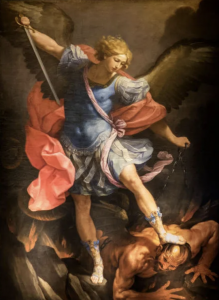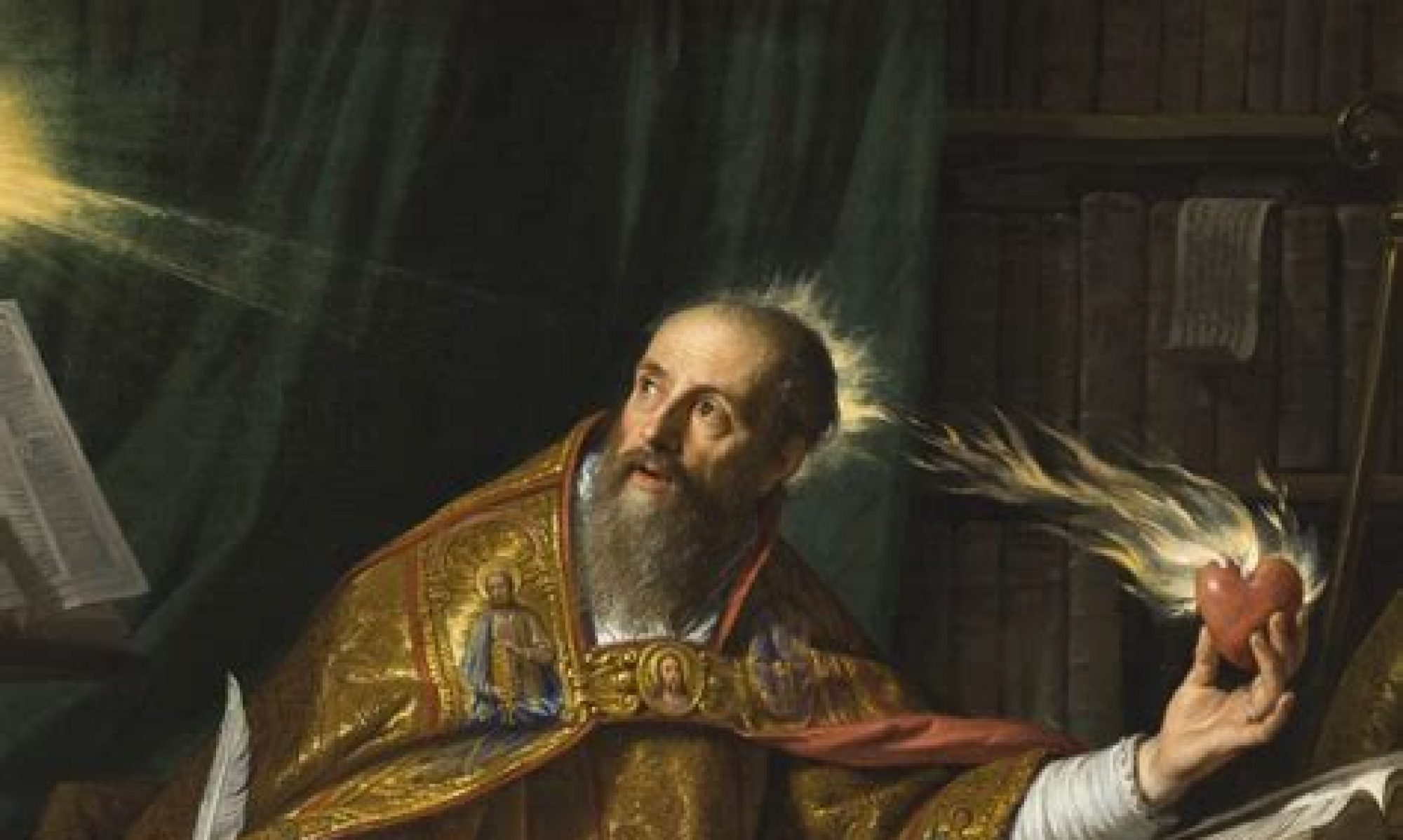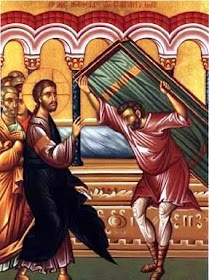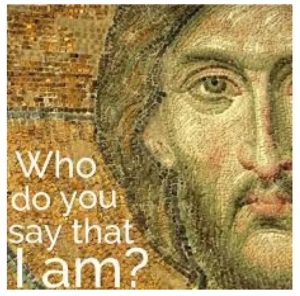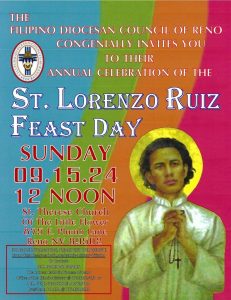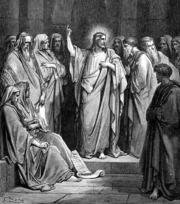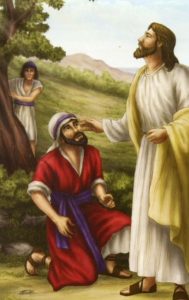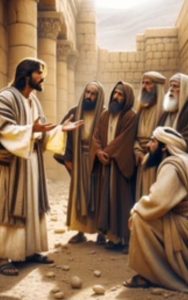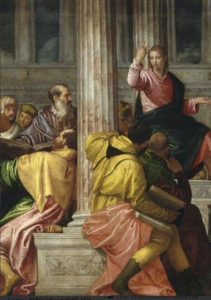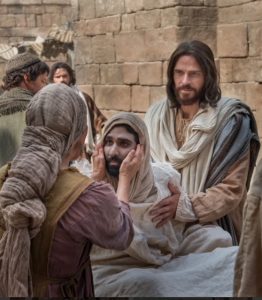- Apocalypse 1:1-5
- Matthew 18:1-10
Today is the Dedication of St. Michael the Archangel on the 19th Sunday after Pentecost. After the devastation of the Holy Spirit Mission building, caused by the Davis Creek Wildfire three weeks ago, another incident happened. On September 17, 2024, at 9:30 in the evening, after meeting with the HSM leadership, I almost had a fatal vehicular accident. I was driving cautiously and crossing the intersection on a green light, when another car cut me off by turning instantly to the left, unmindful of the red light on his end. The car did not give any signal and caught me by surprise. I felt the steering wheel of my car move to my left side, evading a fatal collision. I was in shock and what came into my mind was a supernatural experience of my guardian angel protecting me from that imminent vehicular accident. I was almost there on the verge of impending death, but fortunately unharmed. I stopped in the middle of the road and was shaking. The safety belt which tightly supported the weight of my body helped, I felt the presence of God who had kept me safe. God always protects us. I realized that no matter how cautious a driver is, if other motorists don’t observe traffic rules and practice driving defensively, accidents may happen. However, I truly believe in the ever presence of God and our Holy Angels. Today, we remember the Feast of St. Michael the Archangel, who is always with us in moments of danger, defending us from evil and the attack of Satan.
The epistle today is taken from the Book of Revelation, or the Apocalypse, which the Church believes this last book of the bible was written by St. John, the evangelist and the beloved Apostle of Jesus. There are two purposes why it has been written. First, John wants to encourage all believers to remain faithful, with hope and endurance, despite the many trials and sufferings. Second, is to urge those who believe in repenting and becoming part of the movement towards the new Jerusalem. John anticipates persecution to increase in the near future, and so he prepares the faithful who will go through this and live difficult days ahead, just as what happened with the violent collapse of the Roman Empire.
For us who cling firmly to our faith, we faithfully will dwell in the new heaven and the new earth. We cannot continue to compromise with evil and darkness but must make the outright decision to reject Satan and the beast in the lake of fire.
This epistle is a kind of Prologue indicating the writer’s greetings and thanksgiving, which St. John infuses with theological content that establishes the authority of his vision. The words grace, peace and hope are essential words to remember so that we will be transformed to be Jesus Christ’s true witnesses. The mentioning of God as one “who is and who was and who is to come” points to God coming again into history to complete reconstruction of the world. St. John also taught us about Christology by describing Jesus as the “faithful witness (transformation of the world), firstborn of the dead (the power through the witness), and the ruler of the earth.” (All rulers will be accountable for the degree which they rule in ways consistent with the values and practices of the gospel.) (Rev.1:5).
This simply gives us a better understanding of the work of Christ in the Book of Revelation, that our Lord Jesus Christ loves us. In the scripture, love is an act of the will for the good of the Church and community. Definitely, our common act of love will free us and the world from domination by Satan (dragon) through the beast (meaning the empire and the world). Hence, in the beginning of this epistle, “God signified the things which must shortly come to pass, sending by His Angel to His servant John, who hath given testimony to the word of God and to Jesus Christ.” Here, it has been mentioned about God sending His angels, which means a spiritual being created by God to guard, to guide and to defend us always.
The gospel today taken from Matthew narrates to us that the disciples did the right thing in bringing to Jesus their question. If we have doubts, issues or questions, we should first take it to the One in-charge, to the One who knows it all. In other gospels the story mentioned that the disciples argued among themselves who was the greatest. Their question is valid and right, but they have wrong motivation because they were competing with one another, competing for position in the kingdom. They were thinking better of themselves, focusing too much on their self-absorbed personalities, showing that each has the qualification to be chosen as number one. This is to show our human nature and tendency at work.
Some of us may answer this question by enumerating achievement, degrees, prestige, and possessions as the main criteria for greatness. This is what many people dream of, gaining honor, fame and power which are usually equated to greatness.
However, Jesus brought forth a child and a symbol representing the vulnerable, lost and marginalized. Jesus says, “If you do not become like a child, you will never enter the kingdom of heaven.” For Jesus, it is a person who is humble in the manner of a child (open, attentive, eager and loving), who will be the greatest in the kingdom of heaven. Therefore, Jesus’ concept of greatness is absolutely different; it is humility and service that are standards that matter to Jesus. To be humble like a child, we need to be converted and accept the new paradigm taught by our Lord. We need to turn away from our propensity to compete with one another and focus on improving ourselves so that we change from our wicked ways and be transformed. We must regain that likeness of the image of God and also regain our dependence on Divine Protection.
Please consider acquiring the qualities of a child, innocence, joy, frankness, humility, dependence and unconditional love that children naturally embody, I wonder how our lives would be different if we truly follow their example. We can learn a great deal from them. Have you ever thought about humility, to be someone who is kind, and welcoming? Being patient and more loving, we act silly sometimes. However, this is not easy for an arrogant person.
May St. Michael defend and protect us from all evil. God bless us all.
Fr. Arlon, osa
